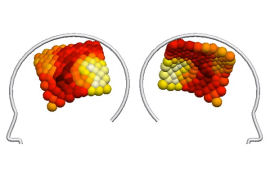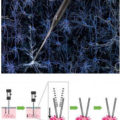
A dream provides us with a form of overnight therapy, say University of California – Berkeley researchers who have discovered that during dreams our stress chemistry shuts down while the brain processes emotional experiences and takes the painful edge off difficult memories. The new findings offer some of the first insights into the emotional function of rapid eye movement (REM) sleep, which typically takes up 20 percent of a healthy human’s sleeping hours.
Reported in the journal Current Biology, the findings also offer a compelling explanation for why people with post-traumatic stress disorder (PTSD) have a hard time recovering from painful experiences and suffer reoccurring nightmares.
Neuroscientist and senior author of the study Matthew Walker explained that dreams provide a soothing balm that removes the sharp edges from the prior day’s emotional experiences, but for people with PTSD, “this overnight therapy may not be working effectively, so when a flashback is triggered by, say, a car backfiring, they relive the whole visceral experience once again because the emotion has not been properly stripped away from the memory during sleep.”
Walker’s findings come from experiments where volunteers viewed emotional images while an MRI scanner measured their brain activity. Half of the participants viewed the images in the morning and again in the evening, staying awake between the two viewings. The remaining half viewed the images in the evening and again the next morning after a full night of sleep.
Those who slept in between image viewings self-reported a significant decrease in their emotional reaction to the images. In addition, MRI scans showed a dramatic reduction in reactivity in the amygdala, the part of the brain that processes emotions, allowing the brain’s “rational” prefrontal cortex to regain control of the participants’ emotional reactions. Additionally, electroencephalograms taken during REM dream sleep showed reduced levels of stress neurochemicals in the brain.
“We know that during REM sleep there is a sharp decrease in levels of norepinephrine, a brain chemical associated with stress,” Walker explained. “By reprocessing previous emotional experiences in this neuro-chemically safe environment of low norepinephrine during REM sleep, we wake up the next day, and those experiences have been softened in their emotional strength. We feel better about them, we feel we can cope.”
Walker said he was tipped off to the possible beneficial effects of REM sleep on PTSD patients from anecdotal evidence that a blood pressure drug was preventing reoccurring nightmares in PTSD patients. He suspected that the blood pressure drug had a side effect of suppressing norepinephrine in the brain, thereby creating a more stress-free brain during REM, reducing nightmares and promoting a better quality of sleep.
“This study can help explain the mysteries of why these medications help some PTSD patients and their symptoms as well as their sleep,” Walker concluded. “It may also unlock new treatment avenues regarding sleep and mental illness.”
Related:
Discuss this article in our forum
Dream therapy set for a revival
Forget about it
Significant success using Ecstasy to treat PTSD
Selective memory erasure achieved


















Comments are closed.